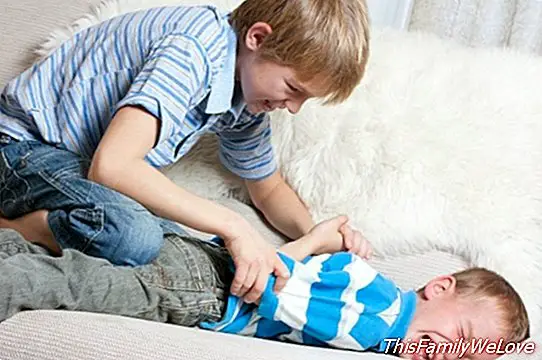7 tips against child aggression


Parents and teachers are often confronted with aggressive children without knowing how to act with them or to manage their behavior and redirect it. These outbursts of aggression are a normal trait in childhood, but some children persist in aggression and are unable to master themselves. Therefore, it is important to know someadvice against child aggression.
7 tips against child aggression
1. Establish guidelines for your child. Both before and after your child has responded with aggressive behavior, he will need you to give him certain guidelines. The aim is to clearly explain to the children the negative aspects of violent behavior in order to persuade them to carry them out and to emphasize the negative consequences they provoke in others.
2. Teach him by example. Children must find in their parents a model of dialogue in the resolution of conflicting situations that arise in the home. Bearing in mind that, as we have pointed out above, children learn by imitation, the example that parents give their child will be decisive so that the child, in the face of a conflict, is able to reject a response based on violence.
3. Offer an alternative. Teaching him not to use violence without giving him a guideline to deal with problems is a mistake. Avoid being a spoiled child. The necessary thing is to analyze together with your child the problems and the different solutions, always offering a real alternative to the bad behavior based on aggression.
4. Avoid violent content. Exposure to violent content increases aggression in children. Therefore, it is necessary that parents avoid any violent content and help them differentiate between fiction and reality so that they learn to measure the consequences of their actions.
5. Praise the positive. Educating in positive will be beneficial for him and for other children or siblings. When a father recognizes that his son has resolved a conflict in an appropriate way, praising him by, for example, praising him, he is not only encouraging him to continue with that behavior, but also presents him as an example for the rest of the children You can find in your peer group a reference of good behavior.
6. Avoid reinforcing aggressive child behaviors. Reinforcing or rewarding the negative behavior of children in front of other people is harmful to them. It is a way to approve the behavior of your child, making him see that what he does is really good and that he can repeat it at any time without negative consequences.
7. Adopt proportionate measures and comply with them. Faced with bad behavior, it is really important that parents, in addition to pointing out to the child what they have done wrong, impose a proportionate measure (punishment) and be firm in their compliance. In addition, it will be necessary that the imposed punishment helps them learn something about the wrong done and the negative consequences that their bad behavior has on others.
Patricia Núñez de Arenas




